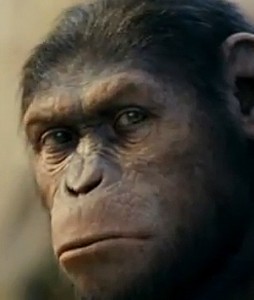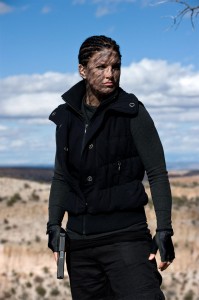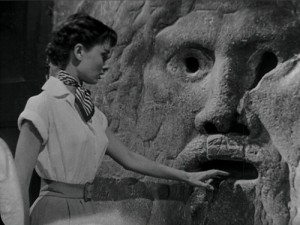Interview: Bill Duke of ‘Dark Girls,’ A Film About Race, Gender, and Skin Color
Posted on January 18, 2012 at 8:00 am

The same test is given to a child in Dark Girls, a searing and very important new documentary from director Bill Duke (“Not Easily Broken,” “Sister Act 2”) about the last unspoken bigotry inside and outside the African-American community, based on skin tones. From the “paper bag rule” that allowed only those with skin lighter than a paper bag to join elite clubs to the debates over the portrayal of light- and dark-skinned characters in “Precious,” this continues to be so painfully divisive that it is seldom openly discussed. Duke and I shared a pot of tea by a fireplace on a cold winter afternoon as we discussed the making of the film and “the unmentionable issue that should always be mentioned.” Following sold-out shows in Atlanta and Oakland, the movie will be shown in Washington D.C. on January 20.
“It comes from issues of my childhood growing up, the way I was treated based on the darkness of my skin,” he told me. “Coming up there, observing what happened to my mother, my relatives that were darker, my sister, niece, it was just something you tolerate and learn to live with. In most families there’s a range of skin colors, not because they asked for it. That’s just the way it is. The lighter-complected children are introduced as special because they are the “pretty ones.” The darker children are loved as much, but they are introduced differently. That difference may not be spoken, but it is felt and that feeling is something that is carried with them for a lifetime, unless there is some intervention, someone who says, ‘There’s nothing wrong with you, everything is fine.’ You’re challenged on the playground: “monkey,” “darkie,” “blackie,” “tar baby,” “nappy head,” “big nose,” “gorilla face.” As odd as it sounds to say it, there’s no malice. They’re just making fun of you because you’re not normal.”
“It’s a global issue,” he went on. “There’s a $32 billion skin bleach business around the world, Japanese, Chinese, Indian, Korean. We cover it from a global perspective. Even men are buying skin lighteners.”
The film covers the issue from several angles, historical, psychological, multicultural, even analysis based on quantum physics. “It deals with energy and how insane we are as a species to distinguish ourselves in differences rather than our commonalities. At the sub-atomic particle level, there is no difference but we define ourselves in terms of the differences.” He described the updating of the doll test in the movie, with a five year old black girl asked to select among dolls of different skin shades which one was pretty, and his reaction on seeing her little dark finger pointing to the white doll. I asked where standards of beauty come from. “If you’re talking about it from a business point of view, there are certain standards that are set: white or light, anorexic, something I don’t think anyone can live up to but the business of it is setting an impossible standard and then telling you we can sell you things to get you there. And then it changes. And if you have no one in your life or home who says that you are beautiful and God does not make mistakes, you will constantly be trying to meet some impossible standard.”
He told me about one interview that did not make it into the movie. A woman said she had never been in the passenger seat of a man’s car. She had dated men but always in public pretended to be their assistant or a friend. She did not think she deserved to be treated as a girlfriend. He said that for five minutes after that interview, no one spoke because her pain was so palpable and so devastating. It affects people at every level and in every profession. “Viola Davis is in our film and talks about her childhood and what she went through.”
“We don’t talk about many things that damage us. I’ve been told, ‘Don’t embarrass us.’ But children are being damaged and so we have to talk about it.” I asked him how his perspective was shaped by working in the industry that is overwhelmingly focused on conventional standards of beauty. “The media is responsible for creating some of these issues and the media can be a tool for communicating a different message. We’re not suggesting we’re going to change the world. But we are very, very concerned. You have to try to use your talents as filmmakers and producers and writers to address some of these issues.”
More from Bill Duke:
Bill Duke: My 40 Year Career On Screen and Behind the Camera





